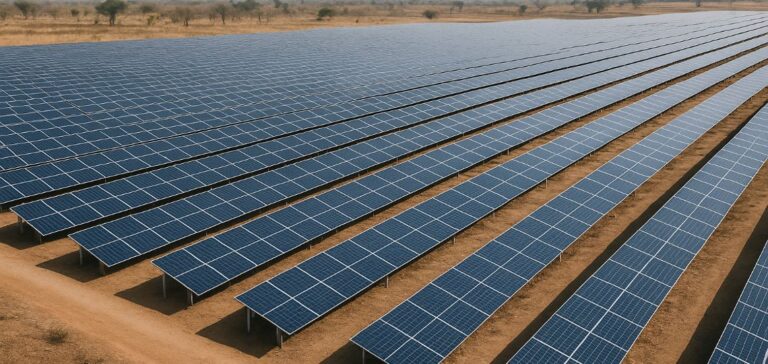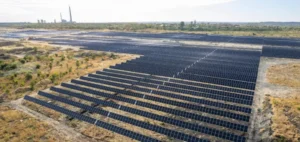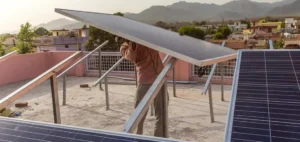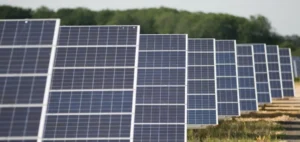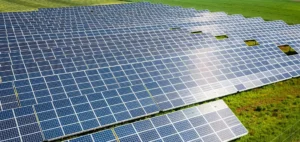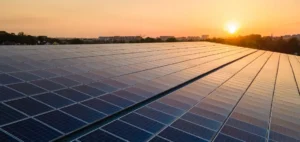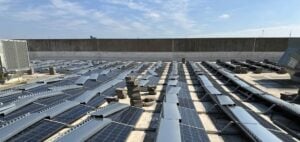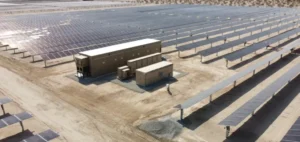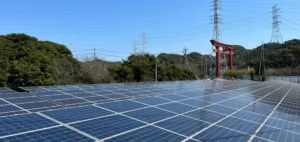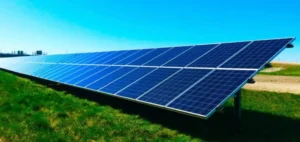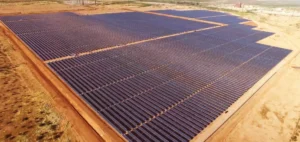The Chisamba photovoltaic solar plant project, with an installed capacity of 100 megawatts (MW), highlights the increasing involvement of the private sector in Zambia’s energy production. Located in the Central Province, this infrastructure is currently nearing completion, having already reached a progress rate of 91%. The initiative, led by Kariba North Bank Extension Power Corporation (KNBEPC), a direct subsidiary of Zambia’s national power operator ZESCO, reflects the country’s ambition to address a national energy deficit estimated at 750 MW as of May 2024. The project, with a total cost of $71.5 million, is exclusively financed by Stanbic Bank Zambia, part of the Standard Bank Group.
A strategic partnership with the mining sector
The plant is being constructed by PowerChina International Group Limited, a company specializing in energy infrastructure. Construction, which began in June 2024, is expected to last about two years, according to information provided by Zambia’s Ministry of Energy. All electricity generated will be purchased by GreenCo Power Services, a company specializing in energy trading in the Zambian market, under a 13-year Power Purchase Agreement (PPA). The primary beneficiary of this energy will be First Quantum Minerals (FQM), a leading player in Zambia’s mining industry, whose high energy demand is a significant economic driver for the country.
Direct impacts on the national grid
The connection of this solar plant to ZESCO’s national transmission network will directly meet the specific needs of FQM, thereby freeing up additional capacity for general consumption. By ensuring regular energy production, the Chisamba project aims to stabilize electricity supply, critical to the mining industry, which is a cornerstone of Zambia’s economy. The integration of this infrastructure into the national grid is part of a broader context of private investments aimed at supporting industry and mitigating the effects of frequent load-shedding, which affects both households and productive sectors.
A structuring project for the local economy
The implementation of the Chisamba project also brings immediate local economic benefits, including the creation of over 200 direct jobs during the construction phase. These jobs help stimulate regional economic activities, promoting local industrial growth. The strategic selection of a central region underscores the importance placed on the equitable distribution of economic benefits associated with new energy infrastructure. The success of Chisamba’s private model could pave the way for similar projects in other regions of the country facing comparable energy challenges.
The ongoing expansion of the private energy model in Zambia continues to attract interest from numerous economic observers, notably because of the opportunities it represents for foreign and local investors. Ultimately, Chisamba’s operational success could lead industrial stakeholders to reconsider their energy strategies in Zambia, leveraging the enhanced capacities offered by the private sector.


